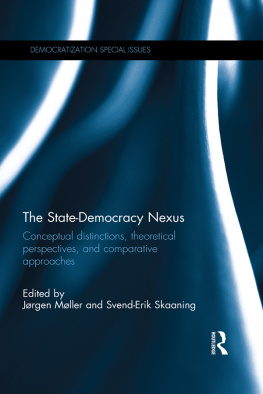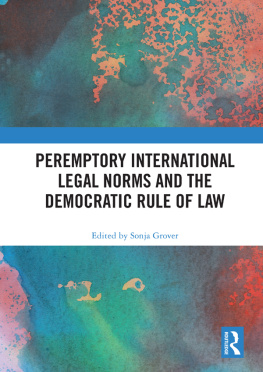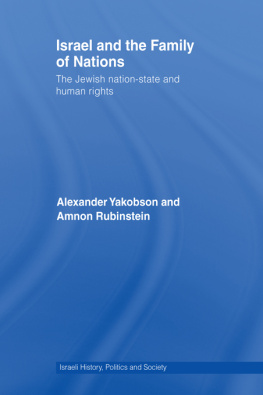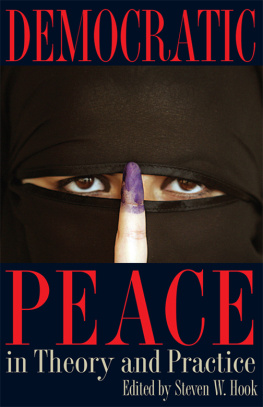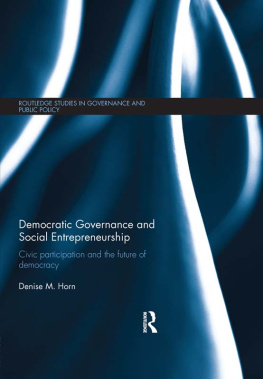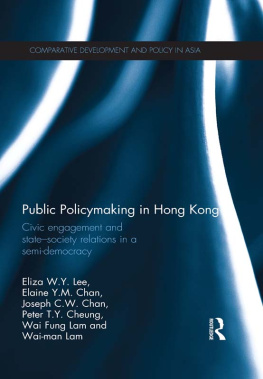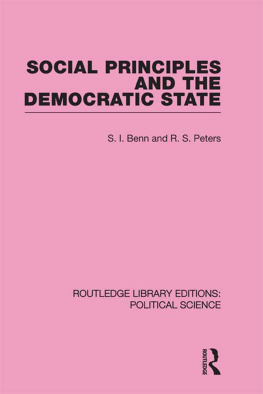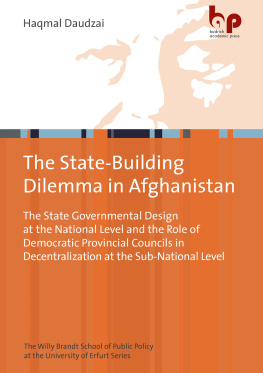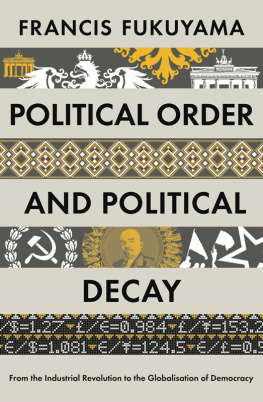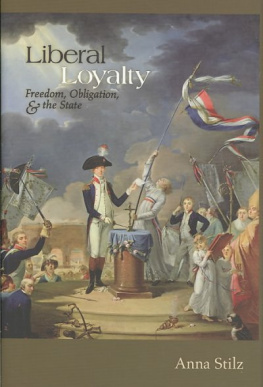The State-Democracy Nexus
The great dilemma of democracy revolves around the state. Historically, the state has played a crucial role as enforcer of liberal democratic constitutions, but it has also been used by autocratic rulers to entrench their rule. The state is thus a two- edged sword: It can both be the guarantee of democratic rights and a tool that can be used to suppress such rights. One corollary of this is that the influence of state structures on democratic development depends on who holds government power. But the opposite observation can also be made, as governments play an important role in shaping the state apparatus. The state and the regime are thus intertwined. Against this backdrop, this book presents a series of attempts authored by influential experts such as Francis Fukuyama and Gerardo Munck to disentangle the relationship between the state and political regimes. The contributions differ in terms of their particular theoretical and empirical focus. But they share the assumption that three criteria need to be observed to achieve a better understanding of the state-democracy nexus. First, it is valuable to distinguish conceptually between different aspects of the state. Second, the potential relationships between democracy and these attributes of state should be carefully theorized. Third, the consequent propositions must be interrogated using comparative approaches. This book was originally published as a special issue of Democratization.
Jrgen Mller is professor of political science at Aarhus University. His research interests include the conceptualization, measurement, and explanation of modern states and political regimes.
Svend-Erik Skaaning is professor of political science at Aarhus University and co-principal investigator of the Varieties of Democracy project. His research interests include the conceptualization, measurement, and explanation of modern states and political regimes.
Their recent books include Democracy and Democratization in Comparative Perspective: Conceptions, Conjunctures, Causes, and Consequences (2013) and The Rule of Law: Definitions, Measures, Patterns, and Causes (2014).
Democratization Special Issues
Series editors:
Jeffrey Haynes, London Metropolitan University, UK
Aurel Croissant, University of Heidelberg, Germany
The journal Democratization emerged in 1994, during the third wave of democracy, a period which saw democratic transformation of dozens of regimes around the world. Over the last decade or so, the journal has published a number of special issues as books, each of which has focused upon cutting edge issues linked to democratization. Collectively, they underline the capacity of democratization to induce debate, uncertainty, and perhaps progress towards better forms of politics, focused on the achievement of the democratic aspirations of men and women everywhere.
After the Arab Uprisings
Raymond Hinnebusch
Voting Rights in the Age of Globalization
Daniele Caramani and Florian Grotz
The State Democracy Nexus
Edited by Jrgen Mller and Svend-Erik Skaaning
Democracy Promotion and the Challenges of Illiberal Regional Powers
Edited by Nelli Babayan and Thomas Risse
Religiously Oriented Parties and Democratization
Edited by Luca Ozzano and Francesco Cavatorta
Religion and Political Change in the Modern World
Edited by Jeffrey Haynes
Comparing Autocracies in the Early Twenty-first Century
Two-volume set:
Unpacking Autocracies Explaining Similarity and Difference
The Performance and Persistence of Autocracies
Edited by Aurel Croissant, Steffen Kailitz, Patrick Koellner and Stefan Wurster
Twenty Years of Studying Democratization
Three-volume set:
Democratic Transition and Consolidation
Democratization, Democracy and Authoritarian Continuity
Building Blocks of Democracy
Edited by Aurel Croissant and Jeffrey Haynes
Political Opposition in Sub-Saharan Africa
Edited by Elliott Green, Johanna Sderstrm and Emil Uddhammar
Conflicting Objectives in Democracy Promotion
Do All Good Things Go Together?
Edited by Julia Leininger, Sonja Grimm and Tina Freyburg
PREVIOUSLY PUBLISHED BOOKS FROM DEMOCRATIZATION
Coloured Revolutions and Authoritarian Reactions
Edited by Evgeny Finkel and Yitzhak M. Brudny
Ethnic Party Bans in Africa
Edited by Matthijs Bogaards, Matthias Basedau and Christof Hartmann
Democracy Promotion in the EUs Neighbourhood
From Leverage to Governance?
Edited by Sandra Lavenex and Frank Schimmelfennig
Democratization in Africa: Challenges and Prospects
Edited by Gordon Crawford and Gabrielle Lynch
Democracy Promotion and the Colour Revolutions
Edited by Susan Stewart
Promoting Party Politics in Emerging Democracies
Edited by Peter Burnell and Andre W. M. Gerrits
Democracy and Violence
Global Debates and Local Challenges
Edited by John Schwarzmantel and Hendrik Jan Kraetzschmar
Religion and Democratizations
Edited by Jeffrey Haynes
The European Unions Democratization Agenda in the Mediterranean
Edited by Michelle Pace and Peter Seeberg
War and Democratization
Legality, Legitimacy and Effectiveness
Edited by Wolfgang Merkel and Sonja Grimm
Democratization in the Muslim World
Changing Patterns of Authority and Power
Edited by Francesco Volpi and Francesco Cavatorta
Religion, Democracy and Democratization
Edited by John Anderson
On the State of Democracy
Edited by Julio Faundez

